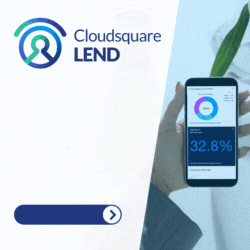small business owners
The Real Impact on Small Business
May 22, 2014 It’s not easy being in the lending business. Just talking about money can make people uncomfortable. Bringing up how much money you have, don’t have, or wish you had is like bringing up politics at Thanksgiving dinner. It’s taboo in this society. It’s even rude to ask somebody how much they make a year. That’s one of two reasons why being a lender or loan broker is so difficult, you’re forced to dive head first into emotionally charged waters.
It’s not easy being in the lending business. Just talking about money can make people uncomfortable. Bringing up how much money you have, don’t have, or wish you had is like bringing up politics at Thanksgiving dinner. It’s taboo in this society. It’s even rude to ask somebody how much they make a year. That’s one of two reasons why being a lender or loan broker is so difficult, you’re forced to dive head first into emotionally charged waters.
The second reason is telling an applicant ‘no’. It feels personal even if it’s not. “It’s just business,” the bearer of bad news will say, but it never feels that way. I know that firsthand through my experience as both a broker and an underwriter. Rejection is a painful experience for an applicant no matter how professional they are.
But sometimes you get to tell an applicant ‘yes’ and that can be an emotionally moving experience as well. Looking back, the only applicants I ever heard cry were the ones that got approved. Some of those approvals were expensive but they were given an opportunity in a world where up until that point, no one was willing to give them any opportunity at all. They were the forgotten businesses of America.
PayPal’s VP of SMB Lending recently said that he feels “blessed to be serving this higher need.” Blessed was an interesting word choice. Being able to support small businesses doesn’t just make him feel happy or hopeful or satisfied, it makes him feel blessed.
What is the real impact that alternative financing companies have on small businesses? Thanks to the funding companies who took the time to find out. Today, we can see for ourselves:
Above is just a small handful of the testimonials you can find on the websites of CAN Capital, Kabbage, RapidAdvance, Fora Financial, and Merchant Cash and Capital. Real businesses, real stories, real impact.
And there you have it…
Federal Reserve Examined Alternative Business Lending
March 20, 2014 Back in January, 3 staff members of the Federal Reserve board investigated peer-to-peer (p2p) business lending, particularly by comparing it against p2p consumer lending. It offers this introductory background, “As distrust and dissatisfaction with commercial banks grew during the recent financial crisis,there was large growth in nonstandard types of borrowing arrangements.” That’s usually where we’d segue off into a discussion about merchant cash advance but it was the p2p model that had them so intrigued.
Back in January, 3 staff members of the Federal Reserve board investigated peer-to-peer (p2p) business lending, particularly by comparing it against p2p consumer lending. It offers this introductory background, “As distrust and dissatisfaction with commercial banks grew during the recent financial crisis,there was large growth in nonstandard types of borrowing arrangements.” That’s usually where we’d segue off into a discussion about merchant cash advance but it was the p2p model that had them so intrigued.
As it is a 28 page study, I have pasted the excerpts I felt were most relevant with my comments on top. The link to the full report is at the bottom:
Something I’ve noticed a lot myself:
Small business owners often intermingle their personal and business finances
Something Lending Club might want to think about a day after they announced business loans with an interest rate of 5.9%:
Our results indicate that loans for small business purposes were more than two-and-a-half times more likely to perform poorly.
Do merchant cash advance companies face a similar risk?
Between 2006 and 2008 peer-to-peer lending grew steadily. It hit a snag in 2008 when the SEC determined that their loans should be classified as securities and, thus, regulated. This led both Prosper and Lending Club to put any new loans on hold until they properly registered with the SEC.
Yup.
Lending to small businesses is generally considered to be riskier and more costly because small firms have higher failure rates and are more vulnerable to downturns in the economy. Lending to small businesses is further complicated by their informational opacity. Most do not have the detailed financial statements
Lending Club had higher decline rates in high risk states.
while Florida was home to more than 4,000 applications for small business loans, fewer than 300 of them were funded
We’ve all seen deals where the merchant requests much more than we’d ever feel comfortable with:
requesting greater amounts of money decreased the likelihood of a loan being funded; each additional $1,000 requested decreased the likelihood of funding by about 4 percent.
Rest assured, the government will be watching and measuring the impacts all the while. Do higher cost, low paperwork loans impact small business longevity? I’m reminded of the raging stacking debate taking place in the industry right now…:
As small business owners are increasingly turning to this alternative source of money to fund their businesses, policy makers may wish to keep a close eye on both levels and terms of such lending. Because such loans require less paperwork than traditional loans, they may be considered relatively attractive. However, given the relatively higher rate paid on such loans, it may be in the best interest of the business owner to pursue more formal options. More research is required to understand the long-term impact of such loans on the longevity of the firm and more education to potential borrowers is likely in order.
What’s the Reason Behind the Rise of Non-bank Financing?
March 6, 2014OnDeck Capital CEO Noah Breslow is no stranger to CNBC. Just as word hit the press that his company had raised another $77 million, he made a television appearance to discuss their success.
So why are small businesses owners turning to alternatives?
Many businesses that use alternatives such as OnDeck qualify for traditional bank financing and use the alternatives anyway. Now that’s something to think about…
How Will Obamacare Affect Small Businesses?
December 12, 2013It’s one thing to assume how small businesses feel about Obamacare and another to hear it straight from the horse’s mouth. New York-based funding provider Merchant Cash and Capital surveyed their clients and this is what they learned:
- Nearly one third of respondents believe the Act will increase operational expenses.
- 40 percent aren’t sure how it will impact their business.
- One in four respondents said they will halt any growth initiatives in the near future as a result of the Act.
Infographic from MCC

Can An Increase In Cosmetic Surgery Open New Markets For You?
November 13, 2013 As reported by the American Society for Aesthetic Plastic Surgery, cosmetic surgical procedures have increased more than 3 percent in the past year, with approximately 1.7 million procedures performed in 2012*. This may not appear to be a drastic rise, but considering that in the past 16 years the number of cosmetic procedures for women has increased over 252 percent*, it is clear that this market is growing exponentially.
As reported by the American Society for Aesthetic Plastic Surgery, cosmetic surgical procedures have increased more than 3 percent in the past year, with approximately 1.7 million procedures performed in 2012*. This may not appear to be a drastic rise, but considering that in the past 16 years the number of cosmetic procedures for women has increased over 252 percent*, it is clear that this market is growing exponentially.
However, although more people might be opting for cosmetic procedures, it does not necessarily mean that more people have the funds readily available or are being approved for financing for such procedures. These can include anything from cosmetic surgery, Lasik eye surgery, cosmetic dentistry or even hair replacement.
When individuals do not have the money right away for these services, they typically can select the option of financing through their selected doctor’s office, if offered, or CareCredit, a credit card designed for patient health, beauty, and wellness needs. But if they are denied, where can they turn to next?
Healthcare industries now have the opportunity to offer an additional method of patient financing to guarantee patients have every possible option to obtain the funds they need for their desired service. External business financing institutions that provide healthcare and patient financing enable practitioners to ensure that no matter what, there is a way for a patient to obtain their desired procedures.
 One of our close partners, a national Lasik surgery provider, has been able to expand their business by taking advantage of such financing services. As a national Lasik provider performing more than 950,000 procedures over the last 14 years, our client has been able to improve their CareCredit financing approval rates from an approximate 50 percent to almost 100 percent.
One of our close partners, a national Lasik surgery provider, has been able to expand their business by taking advantage of such financing services. As a national Lasik provider performing more than 950,000 procedures over the last 14 years, our client has been able to improve their CareCredit financing approval rates from an approximate 50 percent to almost 100 percent.
When denied CareCredit, the patient then has the option to get interest-free financing directly from any business financer. With a small deposit of varying percentages to the provider for the procedure, the doctor is removed as the middleman. This works as a non-recourse transaction, as the patient deals with the external financer directly for their monthly payments. These occur in small installments for the general option of 12 to 24 months, offering the patient flexibility without worry.
What opportunity does this present to ISOs? With the option of these new services, there is the potential for growth into an expanding and relatively untouched market. When offering this solution to doctors and medical providers as a method of subprime patient financing, the doctor can be assured of increased clientele and traffic growth for individuals who may have been previously denied by existing financing options. In addition, as many independent sales operatives currently work with credit card processors, this can only be seen as one more desirable service or market to explore.
* Reference source: http://www.surgery.org/media/news-releases/cosmetic-procedures-increase-in-2012
The Entrepreneur
October 13, 2013 They paint their faces, they unsheathe their swords. They look fearless even if they are in fact full of fear. Some wear a full body of armor and others have no armor at all.
They paint their faces, they unsheathe their swords. They look fearless even if they are in fact full of fear. Some wear a full body of armor and others have no armor at all.
We’ve all seen them, but they are not easily understood. The entrepreneur storms the castle not because he believes he will be victorious in doing so, but because he believes the castle must be stormed. He does it with a purpose and intent that is all his own. Some do it for riches and some for recognition. Others do it simply to change the status quo.
Call it an innate desire for conquest in modern times. An empire of widgets or influence is not much different than the empires of land and resources of yore. When an entrepreneur looks in the mirror, he sees his blood, his sweat, his tears. He sees scars that others cannot. Eyes burning, jaw clenched, he reminds himself that he will not go quietly into the night.
There is an acknowledgement that even if the worst should happen and the pursuit fails, that all has not been in vain, that it was a great honor to have gone down trying than to have not tried at all. One should imagine each failed startup contributing to a greater purpose, as felled warriors being greeted by the ancient valkyries of Valhalla.
Every entrepreneur has that first moment. The moment where they finally take the plunge and risk it all. It’s a moment they can’t take back and wouldn’t even if they could. Completely surrendering to the risk of total failure to pursue self-created success is an event that forever changes a man’s psyche. So empowered is that individual when they exchange their hard hat and workman’s gloves for a battle axe and chainmail. It’s as if pandora’s box opens and all at once they learn that they and they alone control their destiny.
Metal clangs, horses neigh. The entrepreneur roars and charges ahead. The crowd wonders, “why does he do it?” and the enemy wonders the same. Sword unsheathed, gaze steady, fearless looking even if full of fear. Not everyone can be like them. Some wear armor and others not at all. They come from all different backgrounds and circumstances. They storm the castle not because they believe they will be victorious, but because they believe the castle needs to be stormed. They do it because they must do it, because there is no going back. They do it for riches, for recognition, for change, for passion, for happiness, for love, for the challenge, for conquest, for their honor…
Are you an entrepreneur?
The Economics of Lending: Money vs. Goods and Services
May 21, 2013 If I were to offer you the choice between a free DVD with a retail value of $20 or a free $20 bill, which one would you take?
If I were to offer you the choice between a free DVD with a retail value of $20 or a free $20 bill, which one would you take?
Unless the DVD was something you were going to buy anyway or unless it was a rare item that is hard to find, you’d probably accept the cash. I would too, and that’s because I can turn around and exchange the $20 for anything I want. This isn’t to say that someone wouldn’t accept a DVD and give you something of value in return. You could probably do this but it would be a hassle compared to buying something with cash. Cash is the ultimate liquid asset. It has the same numerical value to all that evaluate it and it is acceptable everywhere.
If this is the case, then why do governments set limits on transactions that only involve cash vs. transactions that involve cash in exchange for a good or service? The reference I’m making here is to usury. Many states govern the interest that can be charged on a loan. This is done to protect borrowers but in doing so, they end up hurting them.
For example:
A manufacturer spends $100 to create a commercial refrigerator, but they sell it to a business for $1,000. That’s equates to a fee of 900%. Once the business books it as inventory, they will attempt to sell that refrigerator to a consumer for an even higher price to make a profit. While it’s a nice windfall for the manufacturer, it’s capitalism at its finest.
But what if the manufacturer lent the business $100 cash in exchange for $1,000 back? Does that change the transaction significantly? In our example above, the manufacturer gave the business an item worth $100 and got $1,000 cash in exchange. The business hopes to sell that item for more and turn a profit but a couple things could happen:
- Consumers might not be willing to pay more than $1,000 or anything at all for that model/make/color
- The refrigerator could get damaged and lose its value
If these scenarios were to occur, the business may try to liquidate the inventory for a lesser amount and take a loss, but doing that might not be easy. The refrigerator might have to be inspected and appraised before a buyer is confident to make the purchase. This problem doesn’t happen with cash. People don’t go out and appraise the value of a $100 bill to determine if it’s worth more or less than $100. The other possibility is that the business can’t liquidate it at all and they end up losing the entire $1,000 they spent.
What’s interesting is that if the business had accepted a $100 bill in exchange for paying $1,000 at a later date, that $100 bill wouldn’t have the real risk (discounting hyper-inflation) of becoming worthless tomorrow or becoming the object of a difficult liquidation.
 So when faced with choices again… would you rather take a refrigerator someone spent $100 to make and try to sell it for more than $1,000 or would you rather someone give you $100 cash and you do whatever you want to try to turn that into more than a thousand bucks? On the one hand you have a refrigerator which might have a decent retail market and on the other hand you have cold hard cash that you can do anything with to try and make the necessary profit. You might choose refrigerator but you might choose the cash especially if you had a rock solid idea for that hundred bucks.
So when faced with choices again… would you rather take a refrigerator someone spent $100 to make and try to sell it for more than $1,000 or would you rather someone give you $100 cash and you do whatever you want to try to turn that into more than a thousand bucks? On the one hand you have a refrigerator which might have a decent retail market and on the other hand you have cold hard cash that you can do anything with to try and make the necessary profit. You might choose refrigerator but you might choose the cash especially if you had a rock solid idea for that hundred bucks.
If you’re an expert in your trade, you might be able to build your own higher-quality refrigerator for the same cost of $100 and be able to sell it for $2,000. Sure beats buying a crappy lower quality one and struggling to sell it for more than a thousand doesn’t it? Then you could pay the $1,000 owed and walk away with $1,000 in profit.
Sounds awesome except some states might deem the transaction illegal because to give a business $100 cash in exchange for $1,000 over a certain time period is usurious and predatory to the borrower. But selling a refrigerator valued at $100 to a business for $1,000 is okay, even if the business is never able to sell it.
In the eyes of a state, it is okay for a business to pay a 900% markup for an illiquid asset but it is dangerous to pay a 900% markup for the most liquid asset of all. I don’t understand it. If the idea is to prevent lenders from poaching borrowers or borrowers from making bad business decisions, then why is it okay for someone to sell a product for a lot more than they paid for it? Is a manufacturer selling a $100 refrigerator to a business for $1,000 usurious?
Perhaps your answer would be that a business owner wouldn’t engage in such a transaction if he/she didn’t believe it could be sold for more, either because there is an established retail market or because of sufficient market research. That is a weak defense because businesses get stuck with inventory they can’t sell all the time. Whether the market changed or it was just a bad business decision, Americans attitude towards speculation on a good or service is one of total acceptance. But give a man a dollar and he can’t be trusted to earn back more than a few cents on it. A legislator might evaluate these potential returns on a $1 investment like this:
Turn it into $1.05? sure!
Turn it into $1.15 maybe…
Turn it into $2.00? Let’s make laws to prevent people from thinking that way!
In many states, if you borrow a dollar so you can make three but it cost you a dollar in interest to make this happen, it’s illegal. But if you pay a dollar for an old banana peel with the hope of selling it for $3, that’s a business transaction.
I could rehash examples over and over, but where I’m going with this is that there are things like credit history and risk criteria that prevent people from borrowing a dollar at a relatively low rate. Naturally, the more risky the borrower, the higher the cost. After a certain level though, the law intervenes. If the amount of risk warrants a very high rate of interest, more than what is allowed by law, the government would rather the borrower get nothing than allow the transactions to go through. It’s a very sad position the government takes on its citizens, that the borrower is not capable of generating the return they believe or that that they lack the intelligence to know what they’re engaging in and therefore the transaction should be stopped altogether. In a utopian society, saving people from themselves might seem fair and just, but in reality there are millions of people and businesses with less than stellar credit, disqualifying them from borrowing at all because to compensate for risk would require a rate of interest disallowed by law.
At this time last year, 53% of Americans had credit scores of 700 or better. 700 is that magic threshold and it means that 47% of Americans are going to have a hard time obtaining credit or won’t be able to get it at all. When the laws were written to protect borrowers, I highly doubt the legislators understood they would be locking out almost half the country.
It’s ironic then that in times of financial crisis, government points the finger at banks for keeping credit tight, when it is nearly impossibly to free it up because of how regulated it is.
 Credit has been screwy the last few years because government intervention is wreaking havoc on the market. The maximum allowable interest rate on an SBA 7(a) loan maturing in less than 7 years is the Prime Rate + 2.25%. That would be 5.5% annually. FICO states that the odds of a borrower becoming delinquent on their loan (90 days or more behind) range from 15% to 87% if their score is less than 700.
Credit has been screwy the last few years because government intervention is wreaking havoc on the market. The maximum allowable interest rate on an SBA 7(a) loan maturing in less than 7 years is the Prime Rate + 2.25%. That would be 5.5% annually. FICO states that the odds of a borrower becoming delinquent on their loan (90 days or more behind) range from 15% to 87% if their score is less than 700.
How can you expect to make money if you can only charge a maximum of 5.5% when 47% of all Americans have a 15 to 87% chance of going delinquent or defaulting? You can’t and that’s why the Small Business Administration exists. In order to manipulate banks into making wildly unprofitable loans to businesses, the Federal Government via the SBA guarantees up to 85% of the losses banks are stuck with. It’s a bandaid solution to the broken market that usury laws create.
The SBA also empowers banks to crush private sector competition since many non-bank financial institutions do not participate in the SBA program and therefore need to charge vastly higher rates to compensate for risk.
But even the SBA has strict criteria on default coverage. Many borrowers do not meet the SBA’s criteria, leaving the bank unable to lend to them.
It is no surprise then that the end result of continued credit market dysfunction has led to non-bank financial institutions getting creative. If you can’t loan a man a buck in return for two, then buy 2 bucks worth of his future success in exchange for a buck today. That was the original basis behind Merchant Cash Advance financing and the concept is rooted in factoring. Americans accept the buy/sell arrangement in business no matter how much risk each party is taking and so if we start treating cash as an asset, of which there is nothing more liquid, then we’ve finally cured the disconnect of money versus product/service.
For those with heavy debt, critics point fingers at the lenders, disregarding the cash the borrower got as a seemingly empty asset with no value that disappeared over night, a trick they’ll conclude was all part of the lender’s plan to saddle the borrower with evil debt and interest charges.
Somewhere along the line, a few people stopped thinking about how they could turn a dollar into two and started thinking how they could use the dollar to pay for something they already got while worrying about the dollar and interest owed on it at a later date. As this psychology has taken root in our culture, people have painfully learned that the ability to borrow runs out and the reality of owing a lot of money interferes with the comfort of living the way they did before. Lenders have taken losses and legislators have enacted laws to prevent people from hurting themselves. It all comes back full circle as we wonder now why banks aren’t lending and people can’t get credit.
There are many solutions, some temporary, some long-term, some will help a little, and some will help a lot. All of the debates, arguments, and finger pointing don’t change the fact that no matter how much progress we make, there are people out there that are wondering how they can borrow a dollar today to pay for something they already got. Businesses borrow to pay for past due rent, pay off inventory, taxes, payroll, and equipment. There are instances when a cash infusion is appropriate because the business will bounce back and there are instances when a loan will prop an insolvent business up for a short while, only for it to finally fail because the profitability or cash-flow problems were never fixed.
In America we all understand the trading of goods and services for money, but when money is traded for money, we get confused. If you are willing to pay $1,000 for a refrigerator it cost someone else $100 to make with the belief that you could resell it for $2,000, then there is no reason why the manufacturer shouldn’t be able to borrow $100 and go direct to the consumer themselves. The $900 interest fee is justified. Let’s not forget that a competing lender will charge less to try and steal the borrower away. The market will takeover until the perfect balance is met between risk and reward. When we legislate away this natural process we cause dysfunction, creating the needs for bandaids like government guarantees to force a market into existence while disrupting all of the other ones.
Undo the regulations and inspire the masses to turn a dollar into two, a hundred, or a thousand! The possibilities are endless with cash. If you can’t think of a way to turn a healthy profit with the most liquid asset on Earth, then chances are your luck won’t be much better with selling refrigerators or anything else.
– Merchant Processing Resource
https://debanked.com
MPR.mobi on iPhone, iPad, and Android
Merchant Cash Network Hosts MCA Info Session
April 20, 2013I recently had the opportunity to sit in on an informational session for small business owners hosted by New York City based ISO, Merchant Cash Network (MCN). On Wednesday April 10th, small businesses packed into a room at 1375 Broadway to learn about alternative financing with a focus on Merchant Cash Advance. MCN’s vast knowledge on the subject was obvious and I definitely believe these grass roots sessions are an excellent way to both educate the public and to bring businesses together to network. Great work guys!































